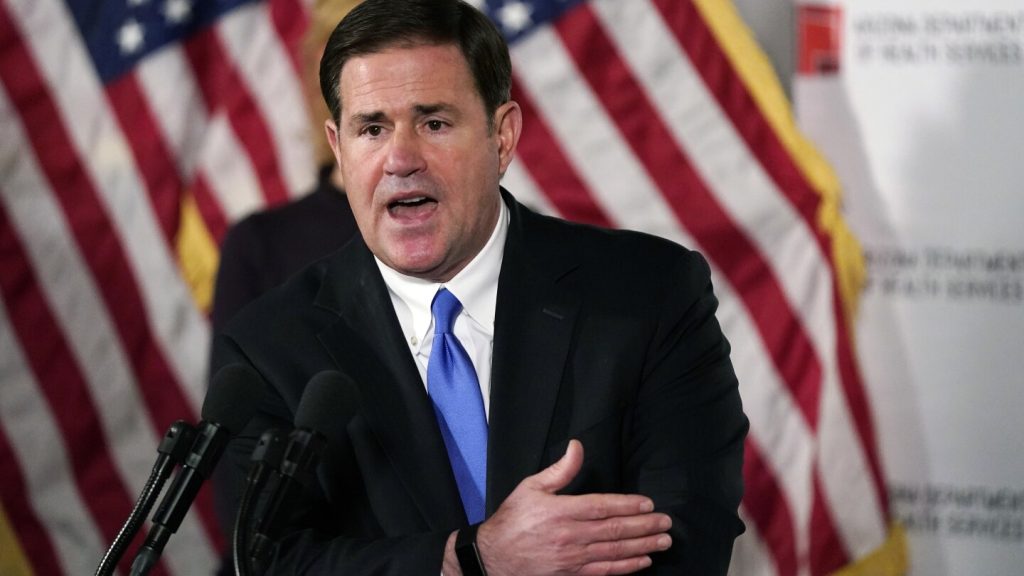The ban on nearly all abortions in Arizona has sparked controversy, particularly among Republican officials who are now facing the consequences of their stance on abortion following the U.S. Supreme Court’s decision to overturn Roe v. Wade in 2022. Former Arizona Governor Doug Ducey, who expanded the state Supreme Court to appoint conservative justices, expressed dissatisfaction with the recent ruling that revived an 1864 law criminalizing abortion throughout pregnancy. Ducey, who had previously signed a law banning abortions after 15 weeks of pregnancy, believed that the new ruling went too far and was not aligned with the preferences of voters.
Similar challenges to abortion bans have been seen in other states such as Virginia, Kentucky, and Ohio, where Republicans faced setbacks with their abortion bans being overturned in referendums that enshrined the right to abortion in state constitutions. In Florida, Governor Ron DeSantis signed a six-week abortion ban that was upheld by the state’s high court, but an abortion-rights referendum is set to go before voters in November. The issue of abortion has become a significant factor in elections, potentially boosting turnout for Democrats and creating challenges for down-ballot Republicans, as most U.S. adults do not support stringent abortion restrictions.
Former President Donald Trump, who appointed three U.S. Supreme Court justices involved in overturning Roe v. Wade, criticized the recent abortion bans, including the one in Florida, calling them a “terrible mistake.” Ducey, in response to the Arizona Supreme Court ruling, defended the ban he signed as a “thoughtful conservative policy” that Arizonans can agree on. The legal battle surrounding the abortion laws in Arizona has been ongoing for nearly two years, with the recent ruling coming months after arguments were heard by the court. The crux of the case revolved around whether Arizona’s 2022 ban or the 1864 ban would apply after the overturn of Roe v. Wade.
The legal uncertainty surrounding the abortion laws in Arizona has caused confusion and disagreement among elected officials, with even Republicans holding differing views on which law should take precedence. Despite Governor Ducey’s support for the ban after 15 weeks of pregnancy, the majority of the justices in the Arizona Supreme Court ruled in favor of enforcing the 1864 law, leading to further uncertainty regarding abortion regulations in the state. The complexity of the issue has highlighted the challenges and divisions within the legal system and government officials, reflecting a broader national debate on abortion rights and restrictions.















